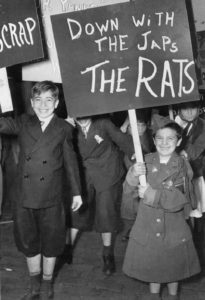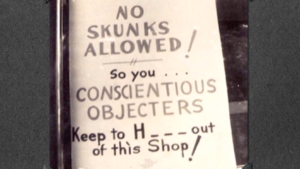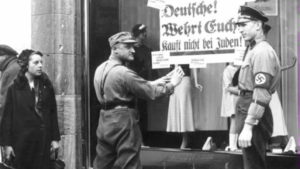‘Elder Voices: Stories for These Times’ draws parallels between WW II and now
 May 23, 2019
Category: Featured, Long, Media, Purpose
May 23, 2019
Category: Featured, Long, Media, Purpose
“When you see something wrong, it is your obligation to speak up about it and not let it go by.”
That is a quote from one of the women in the film Elder Voices: Stories for These Times — which will premiere at the Friends Center Race Street Meetinghouse June 12 — but it could easily serve as a motto for filmmaker David Goodman as well.
“I only make films I care about,” he told Generocity. “All of them are about peace and social justice.”
In fact, it was just such a peace-and-social justice movie that earned the 72-year-old activist filmmaker — a Lansdowne resident born in North Philadelphia — his Academy Award in 1985. The Oscar-winning documentary, Witness to War: Dr. Charlie Clements traced the trajectory of a U.S. Air Force pilot who became an opponent of the war and in 1970 refused to fly any more combat missions in Vietnam. Clements became a doctor serving the rural population of El Salvador during the civil war in the 1980s.
The idea for Goodman’s current film was born during quieter time in our history — in 2011, during the Obama administration — when the filmmaker was engaged by Medford Leas, a Quaker retirement community in Medford, NJ, to make a film about the community’s founder, Takashi “Tak” Moriuchi, who was a survivor of one of the Japanese American internment camps during World War II.
What Goodman discovered is that Medford Leas was home to three distinct group of people with interesting, intersecting stories to tell: Japanese Americans who had been incarcerated during World War II, Jewish folks who had fled Nazism, and war resisters/conscientious objectors.
Many of the latter, Goodman explained, “had been dismissed from jobs and dispossessed by their own families because they refused to fight. It made them pariahs and victims of discrimination” like the other two groups.
“[All of the people in these groups] are in their 80s or 90s,” the filmmaker added, “and have an incredible amount of wisdom.”
After hearing some of them recount their experiences, Goodman decided to interweave the stories of nine of the elders at the retirement community into a film. “We felt that the stories they tell … stories of who’s being scapegoated, who’s being targeted … encapsulated in a contemporary framework were important,” he said. “Because if we don’t learn from the past we’re doomed to repeat it.”
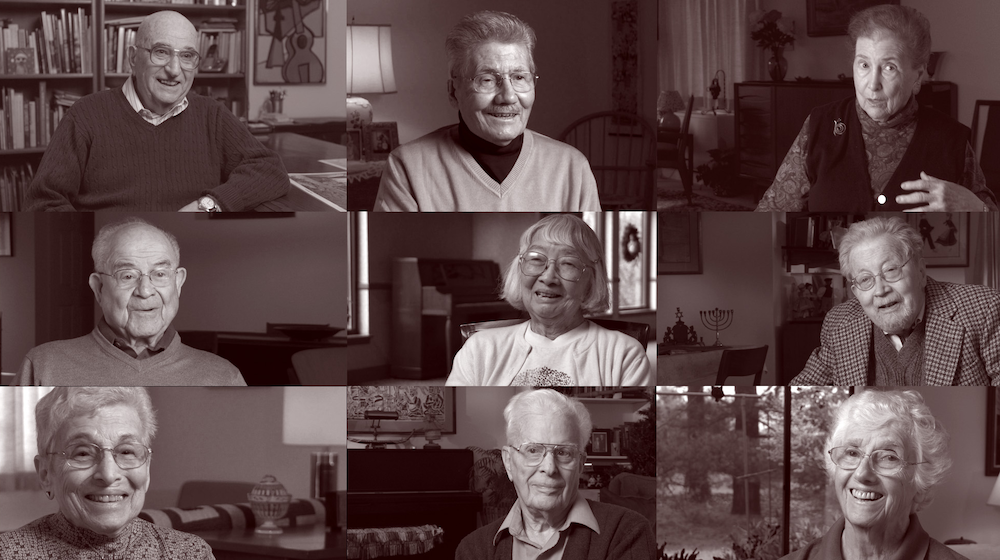
The nine individuals whose stories are told in “Elder Voices: Stories for These Times.” (Courtesy photo)
The retirement community that birthed the project isn’t particularly diverse racially, and neither is the group of elders that tell their stories in the film — only one of them is Japanese.
But as Goodman worked on the film he made a point of showing the work in progress to diverse group of young people, and asked them if the stories resonated anyway. Yes, they told him. “In Nazi Germany they separated families just as we are doing at the border,” he said they told him. “just as Jews were denied entry into the U.S. because of anti-semitism, the situation for Central Americans is the same because of xenophobia.”
“But, put it in context,” Goodman said the young people told him, and he followed their advice.
Goodman, who worked on the film with two Philadelphia editors and a small camera crew from Puerto Rico, said that even though the film is finished, “it is only half done.”
“I will spend a whole year to do outreach with the film,” he said, adding that he wants to ensure that the film can reach a wide group of people, a wide range of community groups, including those who experience marginalization today. To that end, he said, he’s received a grant from Quaker elders to be able to conduct his outreach.
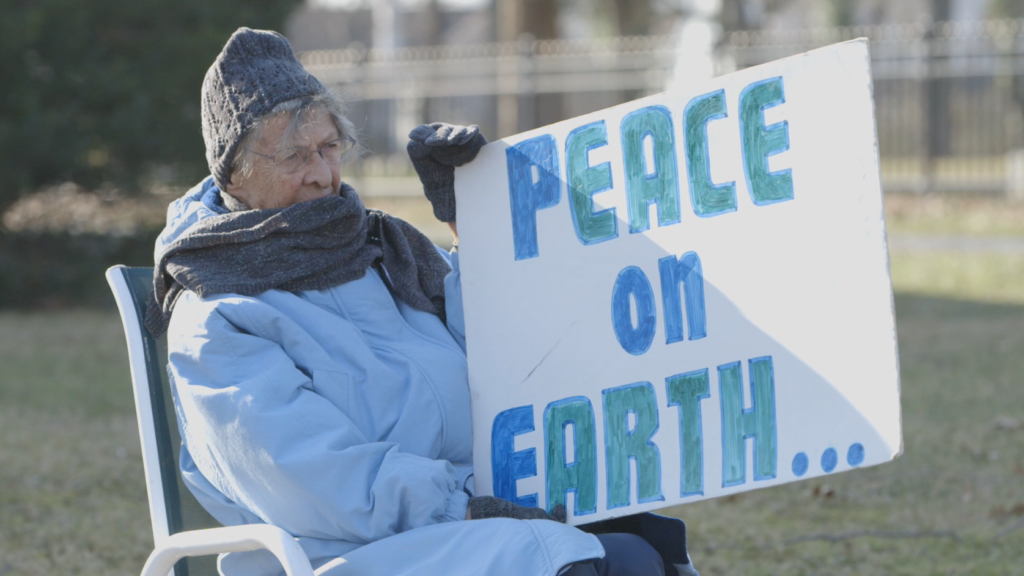
One of the elders interviewed in the film, who still makes a time to rally for peace. (Courtesy photo)
He himself is not a Quaker, he told Generocity, but at 72, he is an elder. Like some of those he interviews in his film — who still go out to rally and agitate for peaceful solutions to today’s issues, Goodman has no plan to stop doing what he believes in.
“I’m never going to retire,” Goodman said. “I feel a commitment to make a contribution in whatever way I can.”
Trending News








